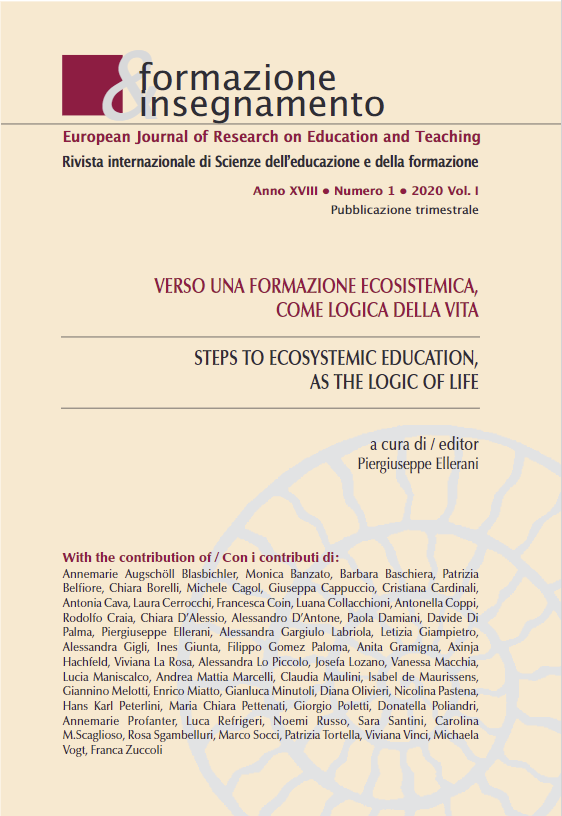Anticipation: between poetics and pragmatics of action
DOI:
https://doi.org/10.7346/-fei-XVIII-01-20_09Abstract
The technologies’s pervasiveness is not a quality that concerns only the dimensions of diffusion, interception of needs and of penetration in every human activity: it intervenes, it anchors itself and it produces effects on the internal mechanisms of anticipation, neural devices for the construction of “future scenarios” considered strategic for decision-making. Identified as the most important of the simplexity principles and recognized by the OECD 2030 as an essential element of learning according to the AAR cycle (Anticipation Action Reflection), the anticipation draws, in fact, from experiences, including medial ones, preserved in the memory, in the light of which present data is evaluated and predictions for the future are made. It is this mental journey between past and future, therefore, that pushes towards a reinterpretation of the experience of temporality in a phenomenological key and assigns the tasks of cultivating memory and exercising gaze to pedagogy, in the awareness that ‘regarder’ (looking back at) the past involves the recovery or the renewal of what has been remembered and that the gaze [regard] includes in itself the idea of respect [egard] and therefore always invites those who look to a deeper commitment.
Downloads
Published
How to Cite
Issue
Section
License
Copyright (c) 2020 FORMAZIONE & INSEGNAMENTO. European Journal of Research on Education and Teaching

This work is licensed under a Creative Commons Attribution 4.0 International License.
Formazione & insegnamento is distributed under Attribution 4.0 International (CC BY 4.0).
For further details, please refer to our Repository & Archiving Policy, as well as our Copyright & Licensing Terms.





